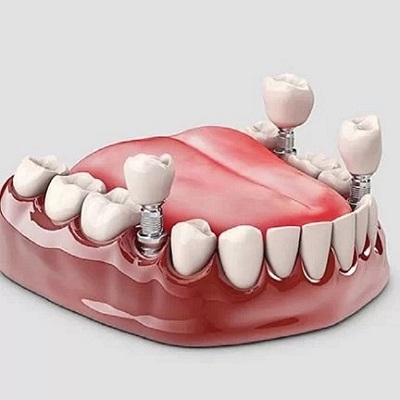Dental implants have become a popular solution for individuals seeking to replace missing teeth. However, many potential patients wonder, “What is the best age for dental implants?” The answer is not as straightforward as one might expect, as various factors influence the ideal timing for this procedure. In this blog, we will explore the best age range for dental implants, the factors that affect candidacy, and the advantages of having dental implants at different life stages.
Understanding Dental Implants:
Dental implants in Islamabad are artificial tooth roots, typically made from titanium, surgically placed into the jawbone. They provide a stable foundation for replacement teeth, such as crowns, bridges, or dentures. The success of dental implants depends on various factors, including age, bone density, oral health, and individual lifestyle choices.
Ideal Age for Dental Implants:
1. Young Adults (18-25 Years)
For young adults, dental implants can be an excellent option, especially if they have lost teeth due to injury, decay, or congenital issues. However, there are several considerations to keep in mind:
- Jawbone Development: Dental implants require a mature jawbone for proper placement. Most individuals reach full jaw development by the late teens. Therefore, while 18 is generally the minimum age for implant placement, many dentists prefer to wait until the patient is at least 25 years old. This ensures that the jaw has completed its growth, reducing the risk of complications.
- Alternative Treatments: In some cases, temporary solutions such as bridges or removable partial dentures may be recommended until the jaw is fully developed. This approach can be beneficial, allowing the patient to have a functional solution while waiting for the optimal time for implants.
2. Adults (25-65 Years):
Most adults fall into this age range, where dental implants are frequently recommended. The success of implants in this demographic is generally high, and there are several reasons for this:
- Bone Density: By the mid-20s, individuals typically have a fully developed jawbone, making them ideal candidates for implants. Healthy bone density is crucial for supporting the implants securely.
- Overall Health: As adults age, they become more aware of their oral health. Maintaining good oral hygiene and addressing dental issues can significantly increase the chances of successful implantation. Those who are in good health, do not smoke, and have no underlying medical conditions are the best candidates.
- Long-Term Benefits: Dental implants offer a long-lasting solution for tooth loss. Adults in this age range can enjoy the functional and aesthetic benefits of implants for many years, often outlasting other tooth replacement options.
3. Older Adults (65 Years and Above):
Dental implants can be a beneficial option for older adults, too, but there are unique considerations:
- Bone Health: Older adults may experience bone loss or density issues due to aging, osteoporosis, or other health conditions. A thorough evaluation by a dental professional is necessary to determine if the jawbone is adequate to support implants. If not, bone grafting procedures can help augment the bone before implants are placed.
- Health Considerations: Many older adults may have health conditions such as diabetes or cardiovascular issues that can affect healing. It’s essential for older candidates to discuss their health status with their dentist and physician to ensure they are suitable candidates for the procedure.
- Quality of Life Improvement: For older adults who have lost teeth, dental implants can dramatically enhance quality of life. They restore the ability to eat a diverse diet, improve speech, and boost self-esteem, allowing individuals to maintain social interactions without embarrassment.
Factors Affecting the Timing of Dental Implants:
Several factors play a role in determining the best age for dental implants:
1. Bone Quality and Density:
The quality and density of the jawbone significantly impact the timing of implant placement. Patients with insufficient bone may require additional procedures, such as bone grafting, which can prolong the timeline for receiving implants.
2. Oral Health:
Good oral health is critical for successful implants. Any existing dental issues, such as gum disease or tooth decay, must be treated before proceeding with implants.
3. Lifestyle Choices:
Habits like smoking and excessive alcohol consumption can negatively affect the healing process and implant success. It’s crucial for individuals considering implants to evaluate and, if necessary, adjust their lifestyle habits.
Conclusion:
The best age for dental implants varies from person to person, typically ranging from late teens to late adulthood. While younger individuals can benefit from early intervention, adults and older adults also have much to gain from dental implants. Consulting with a qualified dental professional is essential to assess individual circumstances, including jawbone maturity, overall health, and lifestyle factors. With proper planning and care, dental implants can provide a durable and effective solution for individuals of all ages, significantly improving oral health and enhancing quality of life. Whether you are a young adult seeking to restore lost teeth or an older individual looking to regain functionality, dental implants may be the right choice for you.
For more information visit Dynamic Clinic PK



